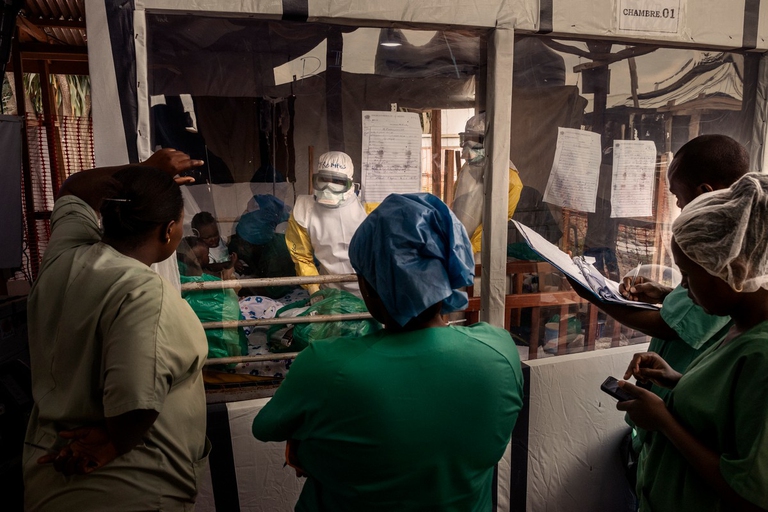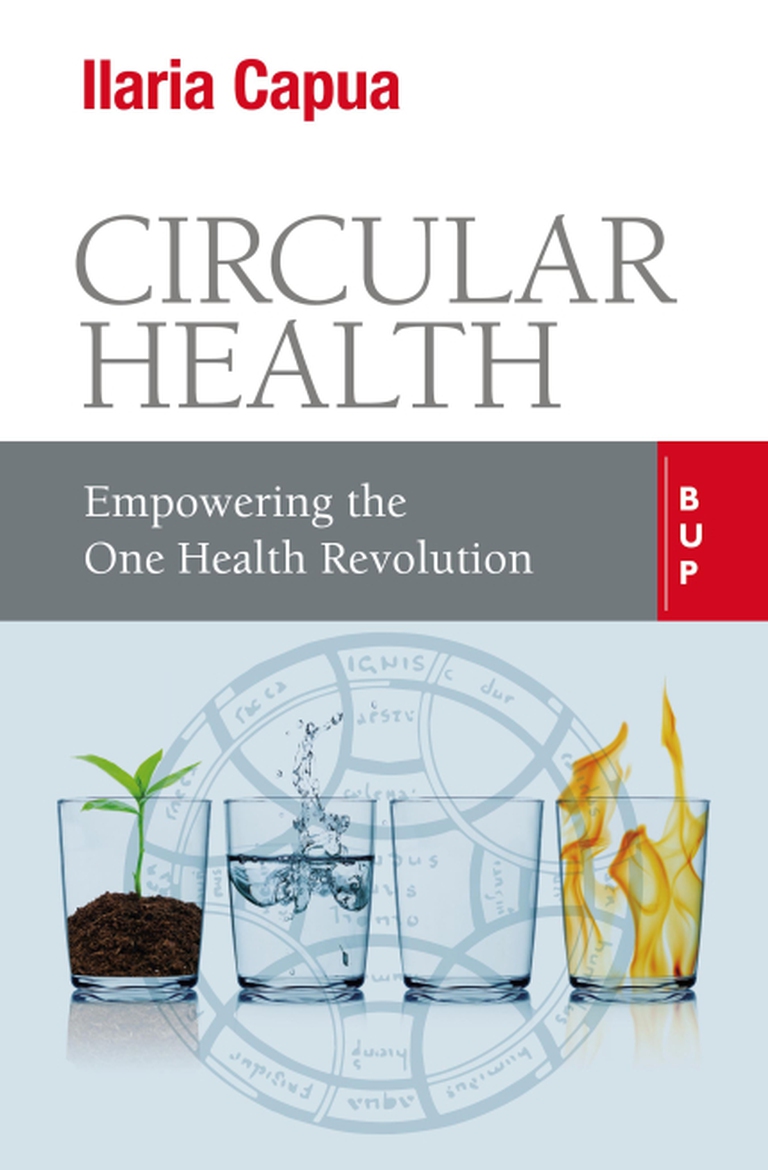
The second wave of the Covid-19 pandemic has shone a painful spotlight on the dire conditions of tea garden workers struggling against poverty in India.
These days her phone hasn’t stopped ringing but Ilaria Capua continues sharing her knowledge to spread information about the novel coronavirus. In this interview she highlights the importance of sustainability.
“We’re doing everything we can. We don’t have all the numbers yet. In Italy, we don’t know if there are 5,000, 50,000, 100,000 or one million cases. So we need to limit contagion by respecting hygiene norms and social distancing. Period. We have to behave intelligently. If you’re ill, stay at home. Let’s use this time productively, without viewing it obsessively or as a nightmare, but rather as a moment in which to reflect; for example, on the power of globalisation, for better or worse”.
This is what Ilaria Capua, virologist, veterinarian and professor at Florida University, known worldwide for her studies on influenza viruses such as avian flu, told us in this interview.
Last year, Capua – whose phone has been ringing without interruption for days – wrote the book Circular Health: Empowering the One Health Revolution (Salute circolare. Una rivoluzione necessaria in the original Italian), published in Italy by Egea with an English translation upcoming in summer 2020. It focuses on the need to “rethink pathways, and suggest new and revolutionary ones to achieve a better balance with animals, plants as well as the environment that welcomes us every day”. These themes are as relevant as ever given that the SARS-CoV-2 virus behind the Covid-19 disease seems to have emerged from an “interspecies leap” caused by our exploitative and disrespectful manipulation of wild fauna and flora. Here’s what Capua told us about the importance of ecology and sustainability in facing a crisis such as the one we’re currently in.
Read more: Coronavirus, immunologist Attilio Speciani on why not to panic about the outbreak
Let’s start with a question that affects us all. When will the peak be reached, and is it true that up to 60-70 per cent of the population will be infected?
Human beings don’t have the antibodies to protect themselves against this virus. It’s like a virgin meadow of green traffic lights where the virus can hop from one individual to the next. Also considering that the infection has been circulating for longer than most people realise, it’s realistic to state that the percentage of the population that is infected is much higher. This, however, could also be a good thing because it could mean that there are more red traffic lights, i.e. more people who have developed immunity.
What is herd immunity?
A person who has developed an infection in clinical or asymptomatic form and has come into contact with the virus, which is an organism unknown to our bodies, reacts by developing “virus catchers”, similar to fishing nets that help capture the viral cells. If this person is immune, it doesn’t let the virus enter its cells: the virus has to stop at the red light. Imagine a viral swarm whose advance will be slowed, and finally stopped, by all these red lights.
Will healthcare systems be able to cope?
We citizens are the healthcare service. All parts of society have to get active and do their bit, for example by being more tolerant, more elastic, not putting their own priorities ahead of everyone else’s and being aware that everyone has to work for the common good. I don’t know exactly how national healthcare systems will cope overall, undoubtedly this crisis is a major stressor that will lead to great changes. When such events occur it’s inevitable that certain things change and deadwood is cut off.
But will they come out stronger or weaker?
This depends on the resources that will be allocated to national health systems and on governments. If ministries are prudent and strengthen the necessary structures, creating virtuous cycles and cutting costs while guaranteeing service levels, they may well come out stronger.
Read more: Coronavirus, what you need to know about the Covid-19 epidemic
Let’s address the topic of sustainability. Where does this virus come from?
Its closest “family member” can be found in bats: it used to be restricted to bats in the jungle but it suddenly moved to live animal markets. In these rudimentary facilities faeces, urine, and butchery waste abound, as was the case for many European markets in the 1940s and 1950s – with the difference that many different animal species interact in them. For example, Chinese markets sell pangolins, snakes and frogs. Therefore, an unnatural scenario developed in which the jungle bats were exposed to other animals that amplified the virus, modifying it to the point that it was able to be passed onto human beings. To the virus, we’re just another host animal.
What are your thoughts on China’s decision to ban legal and illegal wildlife markets? Will it work?
I don’t know (Capua sighs, ed.). We’re yet to see whether what was announced is fully implemented. Also, China isn’t the only country concerned. There are similar issues in the Middle East and in Africa with Ebola. These things happen all the time.
Speaking of ebola, it was confirmed on Friday that the last person infected with the disease in Congo has recovered. What’s your comment on this?
You can even recover from Ebola, this is a miracle.
Read more: Ebola exists. A day at the heart of the epidemic in the Democratic Republic of Congo
Could we say that a more ecological approach is needed to fight epidemics and potential pandemics?
Yes, but it’s not the only solution. The problem is displacement, in which animals are taken from their natural habitats. This is tied to other factors such as the growth of megacities, higher amounts of waste, labour exploitation and inequality. This event has brought all the chickens home to roost, it’s like a black swan.
The mortality rate of the novel coronavirus is often compared to that of pollution and smog, as well as that of the climate crisis. In a way, this also highlights how global problems are confronted differently. Does this make sense?
This isn’t a vector-borne disease, a type heavily impacted by climate change. The concept of “circular health” recognises that even global warming is one of the main drivers of unsustainable situations. And when two situations converge and ultimately clash, resulting in something even more unsustainable, disasters like this one happen.
Therefore, can Covid-19 be understood as part of the macro-theme of global warming?
The answer is yes, because megacities emerge as rural areas empty out, which happens because land can no longer be farmed due to water shortages caused by global warming, as well as a series of other factors. We must acknowledge that problems are very complex, more so than they’ve ever been before, and this complexity has to be studied by using big data. We can no longer look for linear interactions, but rather must find multiple ones that occur at the same time and along different trajectories. Going back to the initial question, it could be that global warming brought the bats from the forest to the city. This shows that everything that affects the movement of animals and people is also connected to disease.
So you can’t go wrong if you respect nature?
No, you can’t go wrong, and in fact we need to respect it more.
Your book is entitled “Circular Health”. The word “circular” is often used alongside “economy‘”. Why did you choose to pair it with “health” instead?
We think of the economy as a closed system in which resources have to be reinvested, and the same is true for healthcare. Circularity is the issue of the future. I believe that within this new conception of health we have to be open and ready to include new perspectives that can help us live a balanced existence within our aquarium. Because we live in a closed system, just like an aquarium.
Siamo anche su WhatsApp. Segui il canale ufficiale LifeGate per restare aggiornata, aggiornato sulle ultime notizie e sulle nostre attività.
![]()
Quest'opera è distribuita con Licenza Creative Commons Attribuzione - Non commerciale - Non opere derivate 4.0 Internazionale.
The second wave of the Covid-19 pandemic has shone a painful spotlight on the dire conditions of tea garden workers struggling against poverty in India.
In response to a lack of public services, organisations and individuals are helping citizens weather the devastating Covid-19 crisis in India.
A study indicates that the zoonotic origins of coronavirus may have been favoured by global warming’s impact on the conditions for bat habitats.
While Africa’s Covid-19 response has been praised by some, the pandemic has triggered the continent’s first recession in 25 years.
In Coronation, a documentary filmed by the people of Wuhan, the dissident Chinese artist documents the government’s rigid control during lockdown.
David Nabarro of the WHO analyses worldwide actions against the pandemic. Lockdowns alone aren’t a sustainable response to stopping Covid-19.
Kenya may fail to meet its target of ending female genital mutilation by 2022 as Covid-19 school closures have seen more girls undergo the illegal practice.
Helsinki Airport has begun implementing a Covid-19 test which is both noninvasive and simple. The exceptional nurses involved are dogs.
The drop in air pollution during worldwide lockdowns helped prevent thousands of premature deaths. But the situation is returning to pre-crisis levels.











